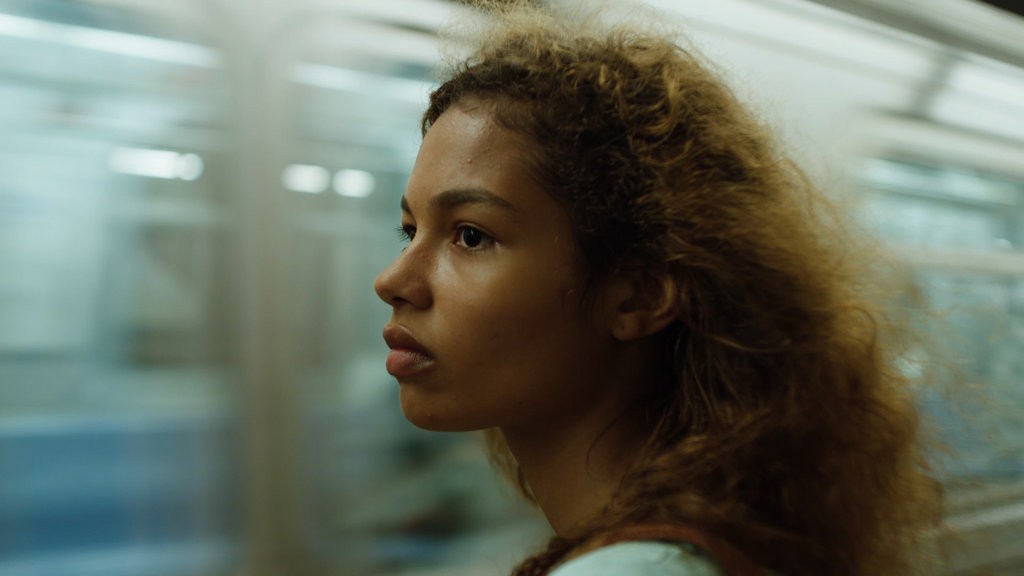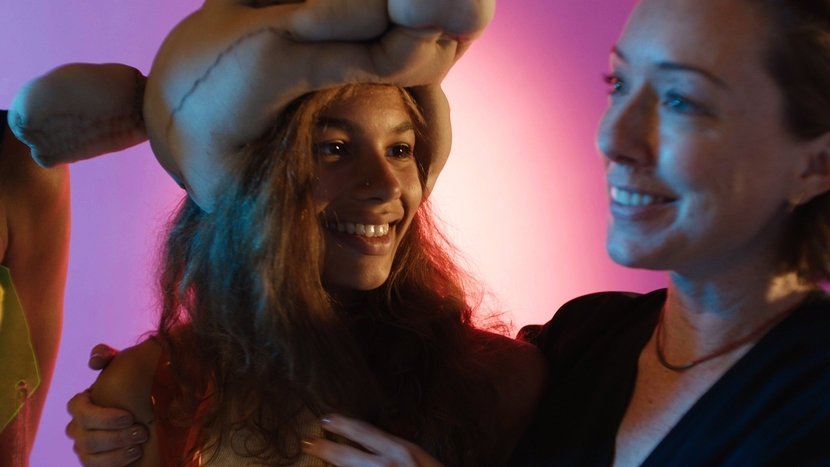READ ME is a platform for female-led writing on film hosted by Girls on Tops. Louisa Maycock (@louisamaycock) is Commissioning Editor and Ella Kemp (@efekemp) is Contributing Editor.
In this latest piece for READ ME, we explore Josephine Decker’s dizzying Madeline’s Madeline, one of our London Film Festival highlights.
When Network’s Howard Beale exclaimed “I’m mad as hell and I’m not going to take this anymore!” his furious plea went unheard, quickly reduced to a circus act. Moral corruption often goes ignored in the name of art, on-screen and off. Idolisation turns into exploitation and the connection between the artist and the muse becomes a rusty chain. The passion incited by art can infect the mind, and when this is taken advantage of, it can cause exponential damage.
Female-led films dominated this year’s London Film Festival, and many - directed by both women and men - explored the complexity of artistic relationships. In particular, Josephine Decker’s Madeline’s Madeline provides a singular portrait of art’s corruptive power on the mind, while still carefully avoiding the mistreatment of its own characters.
Newcomer Helena Howard plays the titular teen; an aspiring actress, she spends her days with a theatre troupe in preparation for a performance in which she will play the lead. Madeline’s dedication to her craft spins with dizzying intensity - she goes beyond acting, she slips into the skin of another. Scenes flicker from the theatre to a beach, as Madeline, now a sea turtle, is crawling to the shoreline. These are no mere dream sequences, Madeline is a shapeshifter. “You were a sea turtle then you were a woman playing a sea turtle,” the group’s leader Evangeline (Molly Parker) says. For Madeline, there is no difference between acting and being.
It’s a practice she also carries outside the rehearsal space – the quarrelsome daughter, the dutiful student or the flirtatious girl on a first date, she’s a woman of many faces. The name of the film informs the viewer that the Madeline you see is a fabricated version of herself, Madeline’s personal Madeline. Her talent captures Evangeline’s fascination, as the teacher encourages her to draw from the tumultuous relationship she has with her mother (Miranda July) and utilise it for her performance.
There’s a codependency in their collaboration. While Evangeline looks to Madeline for inspiration, the mentee finds a matriarchal figure in her mentor. Trust is developed in the private intimacy of the close-up: the camera lingers on the eyes and the lips, emphasising the intensity of their mutual obsession. A tender bond is forged by Evangeline’s hand as she brushes Madeline’s hair behind her ear.
As Madeline’s mind is warped by her two worlds colliding and Evangeline’s pernicious teachings morph into something toxic, the boundaries between reality and fantasy become increasingly blurred. The camera beings to move in a frantic daze. Scenes bleed into each other and all sense of beginnings and endings are lost. Dreams, once told in confidence, are coaxed into spilling out. An explosive monologue by Madeline is a triumphant moment for Evangeline, but is underscored with an undeniably uncomfortable air.
Josephine Decker lends a human touch under the eye of her empathetic lens. Comparatively, with films that depict the struggling artist, a line is ultimately crossed. They revel in the spiralling psyche of its protagonist and become exploitative in their own right. Look no further than Black Swan, in which ballet incites psychological warfare against both Natalie Portman’s Nina and the viewer. Beyond Madeline’s Madeline, the 2018 London Film Festival provided multiple equally complex depictions of artists and their collaborators, but succumb to a similar trap. Brady Corbet’s Vox Lux marries the downfall of a pop star with global tragedy. Luca Guadagnino’s Suspiria, with its occultish ulterior motive, uses dance as a literal weapon. And yet, Madeline’s Madeline remains sympathetic throughout. Even at its extreme climax, Madeline’s mental illness is never treated as a source of terror. It’s in the moment where Madeline is able to reassert creative control that she reclaims ownership of what is hers. Where other narratives culminate in despair, Madeline’s Madeline ends with euphoria.
Our JOSEPHINE DECKER t-shirt is available to purchase here. Proceeds go towards paying our writers and supporting female-led film projects.
Iana Murray (@ianamurray) is a film critic based in Scotland. She is studying for a joint bachelor’s degree in film & media and journalism studies. Her favourite movies are ones about love that make her cry and she writes about them for GQ and The Skinny.



